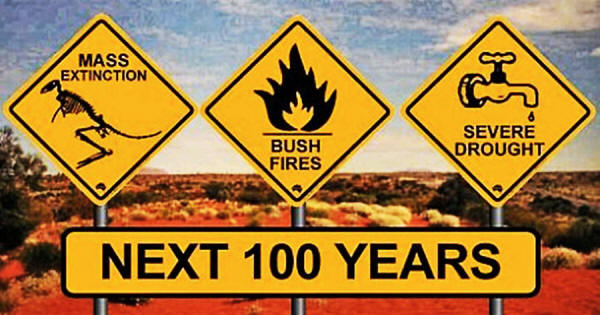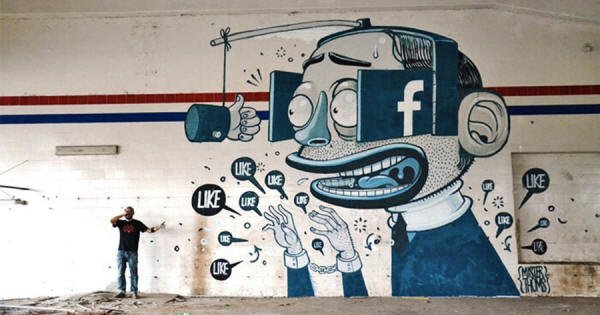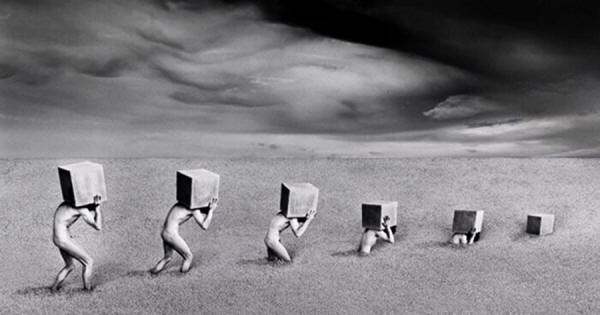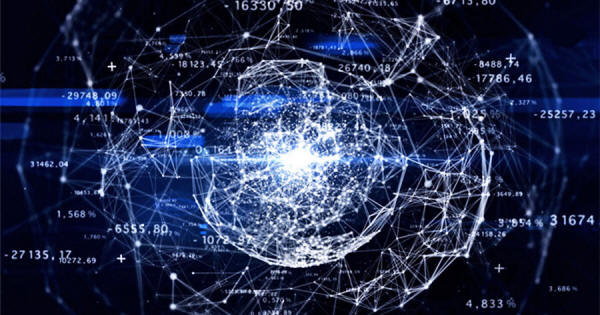|
from UpLiftConnect Website
From the,
...we are constantly going through y-points and missing opportunities to restore sanity and get back on the right track.
Our present-day culture
is, unfortunately, lacking the wisdom and the insights to deal with
the massive changes we are moving into. Our technological
advancement is outpacing our growth in knowledge and wisdom, and our
models of
reality
are failing us big time.
This is what is creating a series of crises in the world we know today.
You see, when an intelligent and adaptive system experiences a mismatch between its environment and its internal model of reality, a crisis will always emerge, prompting the system to self-organize in a way to restore equilibrium and balance.
This is exactly what we are facing right now but our decreasing ability to make sense of the world is one of the biggest obstacles towards slowing down our own demise and restoring balance.
The idea that there is a big lack in our sense-making and why this is the biggest driver of the existential problems we are facing today is also an argument championed by Daniel Schmachtenberger and Jordan Greenhall.
I would highly recommend listening to their podcast interview if you want to go further into the topic beyond this article.
The focus of this article is, in fact, the lack of sense-making, what I believe are some of its causes, and some ideas about possible future scenarios that can help us get out of this growing momentum towards self-destruction.
When an intelligent system's environment and internal reality mismatch,
a crisis emerges.
Get Off My Loop!
We do so by entering certain feedback loops such as in the way our neurons fire and wire to create new neural pathways as we learn, and then using those new pathways to filter and make sense of new information coming from our environment.
It's what evolutionary psychologist, Jean Piaget, called assimilation and accommodation - both being the main ingredients of this neural feedback loop so important to our learning.
The constant dynamic between these two elements of assimilation and accommodation is a feedback loop that allows us to keep on learning and adapting.
There are layers and layers of feedback loops from gene expression, cellular maintenance, to our autonomous nervous system, endocrine system, neurochemistry, socio-linguistic systems and all the way up to global economic systems.
Everything from our cellular biology to our extended and complex social dynamics operates, on some level, through feedback loop cycles.
We humans, as biological
and social beings, are literally the emergent expression of hundreds
of thousands of feedback loops, at several hundred layers of order
and complexity.
Some of these systems hack and exploit more specific feedback loops, such as the adrenaline and cortisol or the dopamine feedback loops in our brain.
For instance, Facebook and other social media platforms are known to have carefully designed user interfaces and interactions that exploit the Dopamine-based feedback pathways, ultimately creating addictions in the same way created by porn or alcohol.
It creates a sort of short feedback reward system (a.k.a. instant gratification) by using the brain's release of Dopamine that is essentially the 'feel-good' neurotransmitter.
Facebook uses a feedback loop
by luring us with instant gratification.
The same thing might happen when the same teen is seeing certain role models staging videos and pictures of an ideal (but grossly inauthentic) life or lifestyle.
Same Dopamine rush, etching and reinforcing itself, until a pattern of dependency is formed.
We can't even start taking stock of the massive amount of man-made systems that are intentionally or clumsily designed to steal away our focus, coherence of information and ability to make sense of the world and its problems.
Social media is definitely not the only system that hacks our neural feedback system through an exploit such as instant gratification, but it does make a clear example of how we are increasingly losing our ability to make sense of the world, shortening our attention span, having our focus diverted from the important to the trivial, and hypnotized with our faces stuck to our screens, as our world, including ourselves, are threatened to oblivion.
As the crap piles up,
there we are being seduced by the blue light glow and entranced into
pressing that 'like' button, much like pressing the bell for
Pavlov's dogs.
Post social media, people are getting more and more hardwired to short media bites. We no longer read books or long articles anymore. Our attention spans have shrunk to somewhere between thirty seconds and two minutes.
We want everything, no matter how complex it is, to be explained in 4K quality sub-titled clips of two minutes max, otherwise we'll just get bored out of our mind and think that the world is insanely too complex to handle.
Now that's not the end of it.
Other media agencies, networks and operators have understood this and want to use it to their advantage because they do not want to be left out of this nifty neuro-chemical exploit of instant gratification and short attention spans.
Last night I was in a household that had the T.V. on a Kids channel and I was amazed to learn that this channel was showing animations and other types of children entertainment in 'social media format' - that is, they were just bombarding two to five minute clips (sometimes shorter than two minutes) one after the other.
Social media exploits us
and directs our thinking.
They learned all the ins and outs of non-verbal communication, hypnotic induction mechanisms and all the ways one can hack into the limbic system and the reptilian brain, in order to subliminally make us perform an action.
Fake it Till you Break it
Then there is, of course, intentional disinformation, or else, information that has been distorted and corrupted as it cascades through different channels of communication.
Think of how many times we hear the word 'Fake News' lately coming out from politicians' mouths to corporate press releases.
As if our mode of communication and our quality of information wasn't bad enough, we are now intentionally throwing in false information. Yet this is nothing new.
Social groups up to nation states have been carefully manipulating information so as to create propaganda or throw enemies or competitors off course. There has been noise pollution in our communication channels since their most rudimentary form.
It's just that it is getting out of hand now because of exponential technological progress and shorter attention spans.
One can also pin this down to the broader socio-political scenario.
As Scmachtenberger rightfully points out in an interview, there is something intrinsic in the dynamics of capitalist society to create a sort of constant win-lose game.
Information within this ideological framework will always be used as a competitive advantage.
So you either hoard it, and be careful how to limit its distribution (so as to create value out of scarcity), or else disseminate noise in the channel through disinformation.
Raising the Question - How Do We Make Sense of it All?
So the thing is this:
How can we break free from this mass hypnosis
to save ourselves?
The Three Pillars of
Sense-Making
Let me unpack this a little bit further.
So perception, interpretation, and motivation work hand in hand...
Perception, interpretation and motivation
work hand in hand.
We need to claim back our attention and our focus. We need to start doing this from the simple and the mundane.
For example,
As for the interpretation and coherence of the information, we need to find new ways to collaborate and make sense of our reality, as already mentioned above.
I will zoom in a little bit on this in the following paragraph.
As for motivation, I believe that we have the inbuilt motivation to thrive and move forward, or at least keep ourselves from pushing the auto-destruct button if the perception of the world and its interpretation align together.
Once we claim our attention and awareness back and create a more meaningful interpretation of our reality, the motivation to solve the existential problems we face will kick into full swing.
Collective Intelligence, IoT, and Transcendental Sense-Making
This is a tricky concept to explain within the bounds of an article but I will try as fluidly and as concisely as I can.
We are entering a phase where our technology is growing exponentially and, together with our lack of wisdom and a still-evolving collective consciousness, it is creating a sure recipe for disaster.
However, if certain steps are strategically played out carefully, certain technology could also be our last chance to avoid total collapse or self-destruction.
This has to do with particular technology that will aid us in interpreting more meaningful information and perceive things that we could not otherwise see, even collaboratively.
Two of the main technologies that might help us achieve this are the so-called 'Internet of Things' (IoT) and 'Artificial Intelligence' (AI), although the latter is pretty much a double-edged sword and can easily sway into the wrong end.
We could see a whole new world of potential
if we tap into the 'Internet of Things.'
It has grown
exponentially in terms of infrastructure - that is, in number of
connections and speed - but we are yet to experience a quantum leap
in the way the Internet will be used.
When data from most of the things on this planet - say doors, engines, tables, appliances, sensors, roads, buildings, etc - will be interconnected and we would have powerful quantum computing and distributed A.I. applications to slice and dice all this data, and present meaningful information out of it - the possibilities are just endless.
The landscape will shift completely and we will literally be able to see a whole new world… if we want to.
Think about it for a minute, your Internet searches would be literally asking for meaningful information, out of data coming from the physical world, in real time.
For instance, an 8th grader would be conducting a social science or trans-disciplinary experiment in real time from her bedroom.
Imagine, just for the fun of it, asking whether people who walk less than three kilometers per month are more prone to cardiac problems or whether wearing a certain color more often is a shared trait among people who drink coffee more than three times a day.
She would be able to get a result about the likelihood and statistics of her experiment in less than a second, because intelligent programs and powerful computing would be mashing millions of data points from people, objects and machines and putting them together to answer a question that was never asked before.
Now, this is, of course, a banal example but think about its ramifications in different spheres of application and problem-solving. It's huge...
Another thing that is relevant to making more sense of data and creating coherent information, is the ability for such technology to profile and connect people, talent, and skills.
How do people come to work together or collaborate on a problem?
It's usually because they are professionals who studied the same discipline, recruited by the same agencies or have similar experiences, or perhaps they are connected to some social media group or professional membership site.
Many times it's just plain and beautiful serendipity. Although things are a hundred times smarter and faster than, say, fifty years ago, it's still pretty basic.
This Internet of Things (IoT) could, at some level, facilitate the creation of a collective intelligence between people and other intelligent agents, so as to keep on creating and evolving this collective intelligence in ways we could not figure out before.
In the case of bringing people together, this is a clear example of something we cannot see from our plane of view.
Intelligent agents, together with layers of rich data, can bring new dimensionality to otherwise blind spots on valuable information.
For instance, a collective intelligence system could - through deep learning - understand, beyond the conventional criteria and channels through which people and skills are usually brought together, that individuals with certain traits and peculiarities are a perfect match to collaborate on a certain issue or problem.
Instead of you finding the right team, the right team is brought to you.
Try to see this as a new guild of people or tribe of minds that could not be possible by seeing things in the conventional ways.
A collective intelligence system could match the right people
to solve issues.
Now, of course, this is
the pragmatic side of it, as in truth, a collective intelligence
could serve endless possibilities and potential. But what is
important to us here is that it is a powerful way to transcend our
limited views, incoherence and blind spots.
His own example serves perfectly well to illustrate the point.
If you see a tree in a forest, its real value can be described within the wider ecological context.
For instance, the cycling of CO2 and Oxygen, sheltering for birds and other pollinators, protecting the topsoil, forming symbiotic relationships with fungus under the soil, and a tall list of other things.
We humans might chop down the tree and see its value in terms of how many planks of wood it yields and their price value down the supply chain. That is using the wrong metrics to flatten its real complex value.
You might simply call it shortsightedness and greed and that might also hit the point.
But the important thing to remember here is that,
...can help us see and understand the real value of many things, as well as how deeply interconnected we are to them.
It will also help us transcend our limited plane of perception, frameworks of thought and our outdated models of reality, in order to finally start making more sense of our responsibilities, the extent of our footprint on this planet and, hopefully, start changing the ways we will save ourselves from auto-destruction and move forward as a species...
|









